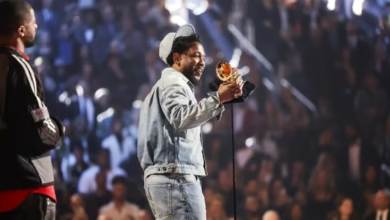Are Record Labels Already Using AI to Make “New Music”? What Does That Mean for Artists?
Are Record Labels Already Using AI to Make “New Music”? What Does That Mean for Artists?

Are Record Labels Already Using AI to Make “New Music”? What Does That Mean for Artists?
Picture this: You fire up your favorite streaming app, press play on a brand-new track by a name you’ve never heard, and it’s catchy, polished, maybe even a little uncanny but there’s a twist. That “artist” might not actually be human. Recent leaks and public confirmations suggest that record labels are already using artificial intelligence (AI) in music production, and some of these AI-assisted songs might already be in circulation.
Spotify itself has acknowledged these developments, saying it is teaming up with major labels to build “artist-first AI music tools” with upfront licensing, optional participation, and a promise to put creators first. But many in the music community remain uneasy, warning about eroding authenticity, unfair compensation, and the rise of “AI slop” mass-produced, low-effort tracks that flood streaming services.
When you can train a model to mimic guitars, voices, even the style of your favorite artist, what becomes “real” music? The Velvet Sundown case—an AI “band” that racked up millions of streams before admitting its synthetic roots — is a stark warning about how easily listeners and platforms can be fooled.
Streaming platforms typically pay out based on minutes listened or plays. But AI-driven “ghost songs” launched en masse by bots can generate microplays at scale, diluting revenue for genuine artists. Some argue models must adapt to credit training data and who contributed what.

Spotify says artists will have the right to accept or decline participation in AI initiatives. Yet in practice, how many will feel pressured to “opt in” just to stay relevant or competitive?
Regulation lags behind innovation
Music law has always been slow to catch up. Issues like attribution, licensing, and transparency in AI‐assisted works are still being hashed out meaning artists could be left vulnerable.
This is a live debate. Here are the kinds of questions artists, producers, and fans should be asking (and we hope your readers will weigh in below):
If your voice or style is fed into an AI, should you automatically receive royalties when that AI mimics you?
Does an AI “composer” deserve credit, or is it a tool like any instrument?
Will platforms force emerging artists to use AI to compete with well-funded imitations?
Should music platforms label tracks as “AI-assisted” so consumers know what they’re hearing?
Where do we draw the line between “helpful tool” and “art replaceable by algorithms”?
What This Means for Nigeria & Africa’s Music Scene
African artists have historically battled underpayment and royalty leaks. The entrance of AI could magnify these issues if not handled transparently.
On the flip side, AI tools (if democratized fairly) could lower production barriers for emerging talent allowing more creativity with fewer resources.
But authenticity is deeply valued. If listeners uncover that certain “breakout hits” were generated rather than lived, trust could erode quickly.
We want your take:
- Do you welcome AI as a creative partner, or see it as a threat to what makes music human?
- If you’re an artist, would you use AI tools? Why or why not?
- Fans, are you comfortable streaming a song once you know it was AI-assisted?
Drop your thoughts below, and let’s spark a conversation that matters in today’s music era.






















